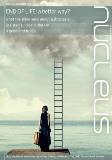Right to die?
John Wyatt
ISBN 9781783593866, IVP, 2015,
£7 from CMF Bookstore
An initial survey of recent UK and world events sets the scene for a discussion of euthanasia, assisted suicide and end of life care. A particular strength is the perspective on recent events, laying out the ideas and arguments that have led to such pressure to legalise assisted suicide in the UK and elsewhere.
'Compassion' and 'autonomy' are the two major arguments used to promote euthanasia. The author not only describes these, but seems to have really wrestled with them, putting these arguments clearly and empathetically. There is no doubt that he has given them a fair hearing; he's also considered the reasons why Christians have sometimes advanced these arguments.
Even so, the case against assisted suicide is made clearly. Biblical arguments around the image of God and the value of human life are made, and will be familiar to many readers. particularly powerful points are made about human dependency; dependency is part of God's design, not a distortion of it.
The place of suffering in God's plan is also considered: 'Suffering is not to be sought, but there are times when it should, at least to some degree, be accepted'.
The book ends by looking at medical and legal factors, and palliative care. this work is a good place to start looking at this issue, particularly for the layperson or a healthcare student new to the topic; the author's compassion is obvious throughout, and the basic arguments are well covered. More senior readers might want to make use of the extensive reference list to delve deeper into the topic.
Laurence Crutchlow is CMF Associate Head of Student Ministries and a GP in London
John Wyatt
ISBN 9781783593866, IVP, 2015,
£7 from CMF Bookstore
An initial survey of recent UK and world events sets the scene for a discussion of euthanasia, assisted suicide and end of life care. A particular strength is the perspective on recent events, laying out the ideas and arguments that have led to such pressure to legalise assisted suicide in the UK and elsewhere.
'Compassion' and 'autonomy' are the two major arguments used to promote euthanasia. The author not only describes these, but seems to have really wrestled with them, putting these arguments clearly and empathetically. There is no doubt that he has given them a fair hearing; he's also considered the reasons why Christians have sometimes advanced these arguments.
Even so, the case against assisted suicide is made clearly. Biblical arguments around the image of God and the value of human life are made, and will be familiar to many readers. particularly powerful points are made about human dependency; dependency is part of God's design, not a distortion of it.
The place of suffering in God's plan is also considered: 'Suffering is not to be sought, but there are times when it should, at least to some degree, be accepted'.
The book ends by looking at medical and legal factors, and palliative care. this work is a good place to start looking at this issue, particularly for the layperson or a healthcare student new to the topic; the author's compassion is obvious throughout, and the basic arguments are well covered. More senior readers might want to make use of the extensive reference list to delve deeper into the topic.
Laurence Crutchlow is CMF Associate Head of Student Ministries and a GP in London
































